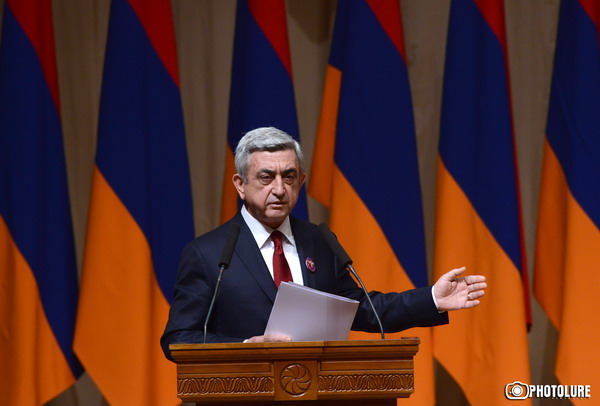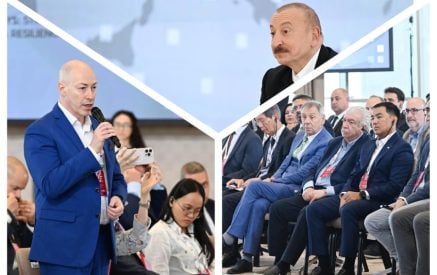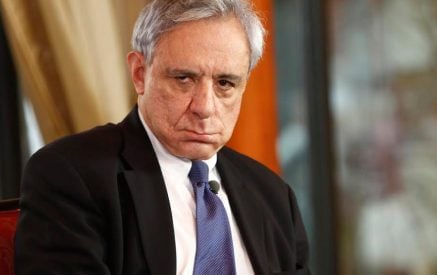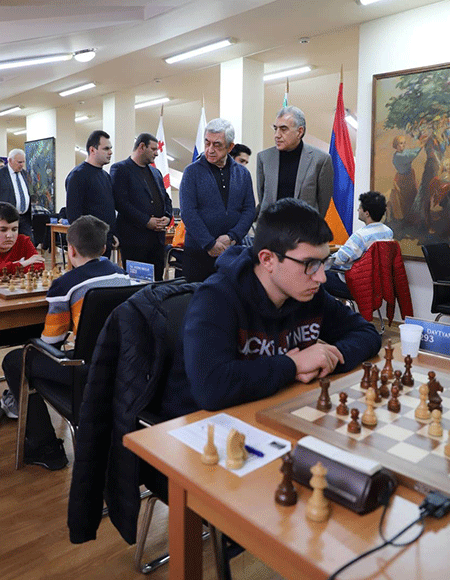“In 2011 it seemed like everyone assumed we came close to the finish line and were ready to sign a document. Then, President of United States made a call to the Azerbaijani President and to me, wishing good luck, the French President wrote a letter to both the Azerbaijani President and to me with same wishes, and the Russian President himself convened the summit. But, unfortunately, in Kazan summit Azerbaijan rejected [the document]…”, – Serzh Sargsyan said in an interview to Russian RIA Novosti news agency on November 17, elaborating about the long way the peace process had come since the OSCE Minsk Group co-Chairmen tabled the so-called Madrid Principles in 2007.
Madrid Document was not the embodiment of our dreams, Sargsyan went on, but we agreed to negotiate on that basis.
“We sat down. The documents were ready. The Russian President (Dmitriy Medvedev) said it was good that we came to the peaceful resolution in his opening remarks. Then Foreign Minister Sergey Lavrov spoke. Then the Azerbaijani President took the floor and said that, they did want peaceful resolution but they still had few issues remaining and brought eight or nine points. It is clear what was the situation thereafter”, – Sargsyan said recalling the presidential summit in Kazan, convened by then Russian President Dmitriy Medvedev in Tatarstan on June 24, 2011.
The international media, such as Russian RT, just reported then that “Armenia and Azerbaijan have failed to come to an agreement over the basic principles for a settlement of the Nagorno-Karabakh issue at a summit hosted by Russian President Dmitry Medvedev in Kazan”, without too much elaboration.
However, the Armenian Foreign Minister Edward Nalbandian unveiled the Azerbaijani demarche in the follow-up statements, which Baku never fully acknowledged.
It is noteworthy, that addressing the Parliamentary Assembly of the Council of Europe just two days before the Kazan meeting, Serzh Sargsyan said Armenia was full of hope that the forthcoming summit may bring positive results.
Read also
“Even under these circumstances, we travel to Kazan in anticipation of progress, as we attach great importance to regional stability and development, to securing a safe future for the generation growing up in Armenia, Nagorno Karabakh, and Azerbaijan, and to demonstrating good will and a constructive approach. However, we all should realize that an agreement can be finalized and effectively implemented only when the patterns of Armenophobia and racism are eliminated in Azerbaijan and an atmosphere of trust is formed. Naturally, no one may question the inherent right of the people of Karabakh to live freely and safely on their land and to be the masters of their destiny”, – Sargsyan said in Strasbourg then.
“[The Azerbaijani demarche in Kazan] was not unexpected to me”, – Sargsyan said to RIA Novosti, – “I told both the US and Russian Presidents that I highly doubted [progress may happen], since the Azerbaijani leader would always reiterate they were not able to recognise the independence of Nagorno Karabakh. Even though the document was ready for signing after three years of efforts”.
Armenia, President Sargsyan said, was still hopeful that a peaceful resolution might be found and efforts of OSCE Minsk Group co-chairmen were important.
Reacting to Kiselyov’s remark that he wished the leaders of Armenia and Azerbaijan “would desire to stay in history as two leaders who brought peace to the region”, President Sargsyan elaborated:
“It is very important to me. It is very important, because I have devoted all my life to this issue”, adding that using force and other means of coercion by Azerbaijan against the inalienable right of peoples to self-determination in the case of Nagorno Karabakh had been both illegal, from the perspective of Soviet legislation or international law, and was in controversion with any set of values.






















































